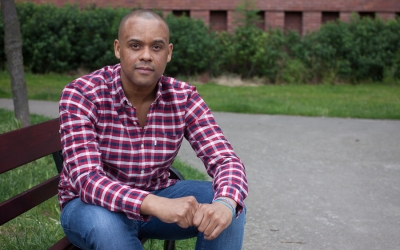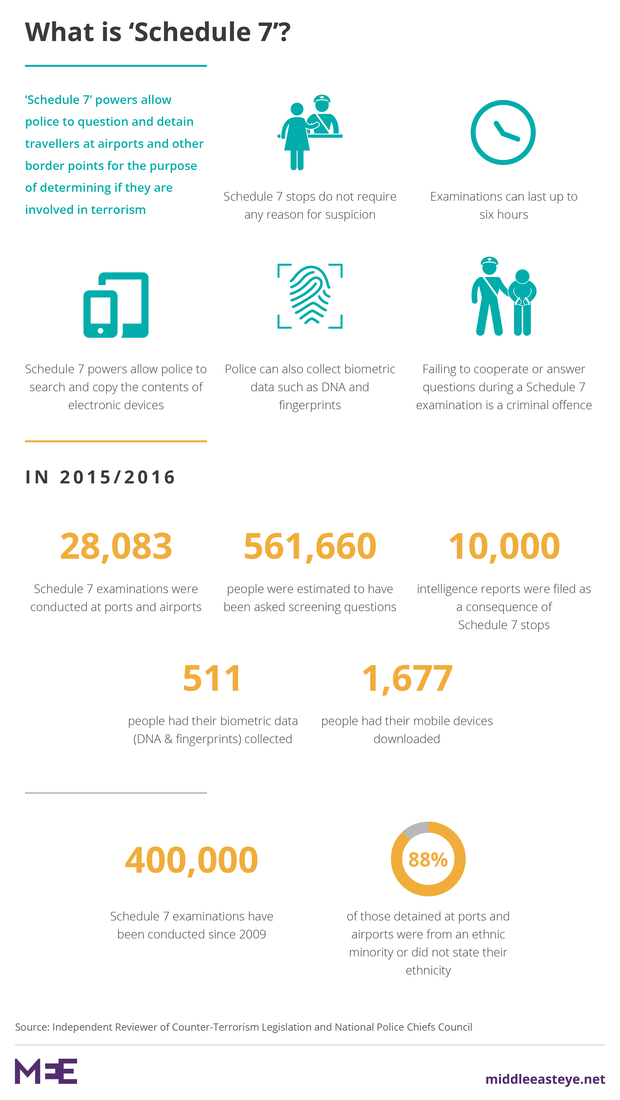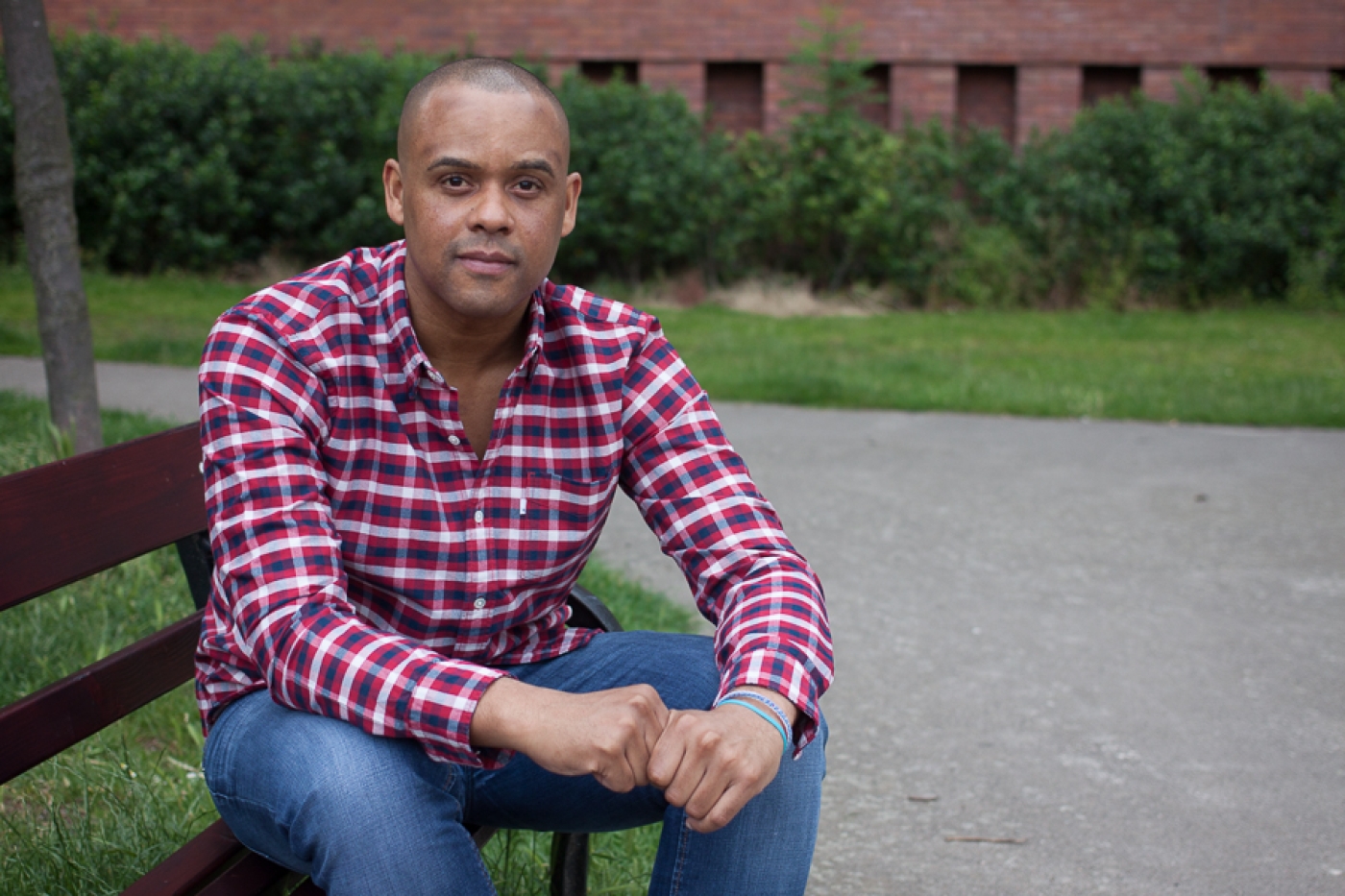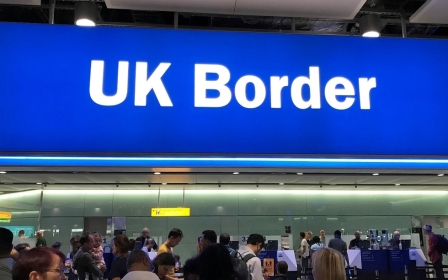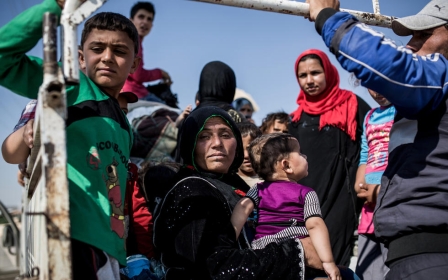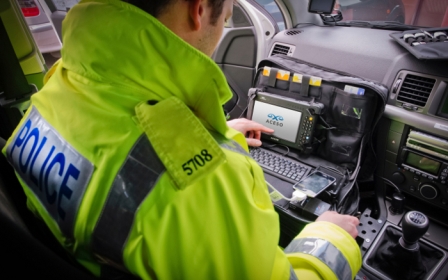Former officer says UK police 'faked Schedule 7 airport stops' to meet targets
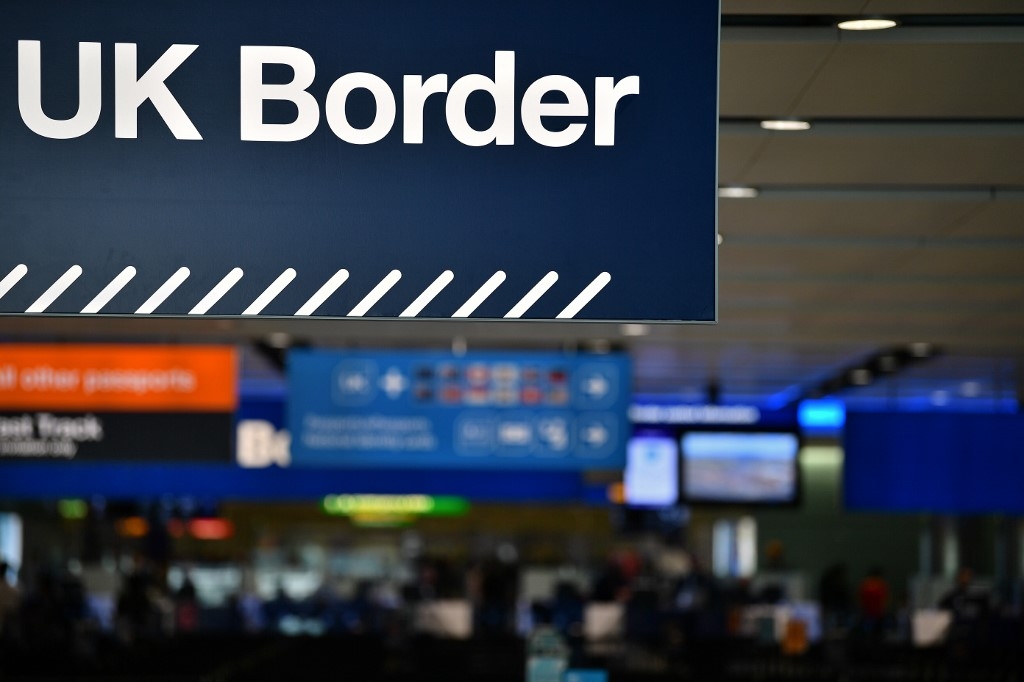
British counterterrorism police desperate to meet targets added Black and Asian airport passengers to terrorism databases without ever having stopped them, a former officer has claimed.
Kevin Maxwell, a former detective inspector at SO15, the elite unit responsible for counterterrorism across Britain, said that colleagues tasked with questioning passengers under a powerful airport stop and search provision called Schedule 7 would instead type passenger details lifted from landing cards into police databases.
“You’re potentially putting someone on the system who shouldn’t be,” Maxwell, who left the force in 2012, told MEE. “They could be on a terrorism system.”
Maxwell’s revelations are likely to renew questions about the lawfulness of Schedule 7, which has long been criticised on grounds that it is disproportionate and discriminatory against Muslims and other minorities.
Under Schedule 7, officers can detain and question individuals without grounds to suspect they are involved in terrorism. Refusing to comply is a crime and those stopped must hand over their computers, passwords and phones if requested, as well as give fingerprints and DNA.
New MEE newsletter: Jerusalem Dispatch
Sign up to get the latest insights and analysis on Israel-Palestine, alongside Turkey Unpacked and other MEE newsletters
The provision has been criticised on the grounds that few stops appear to lead to convictions. A Home Office source told MEE that between 2015 and halfway through 2018, Schedule 7 stops had helped in 30 percent of cases in which a suspect was charged under the Terrorism Act 2000.
Last year Cage, an advocacy organisation which campaigns to highlight civil liberties issues raised by counter-terrorism policies, published a study of Schedule 7 stops in which it said that of more than 400,000 stops it had studied since 2009, just 30 resulted in a conviction.
Landing cards
Maxwell worked for SO15 between 2008 and 2012 and was based at Heathrow, the UK’s busiest airport, through which more than 70 million passengers pass each year. Last month saw the publication of his memoir Forced Out, which offers a rare insider’s account of life on the frontline of the UK’s counterterrorism response.
He offered an explanation for the low conviction rate resulting from Schedule 7 stops.
“In order to keep up their stop figures, my colleagues would attend the immigration desks, mainly when they were unstaffed, and take a handful of landing cards that had been filled in by passengers who had long gone,” he writes.
'My colleagues would attend the immigration desks, mainly when they were unstaffed, and take a handful of landing cards that had been filled in by passengers who had long gone'
- Kevin Maxwell
“They would sift through the cards, looking for what they considered non-white names. These passengers would then be processed, using the information on the cards, and put onto a police database as if they had been stopped.”
He explained that this practice often took place when things were quiet.
“It could be a really quiet day. Say your target’s five. You get two genuine stops in. You could go home without doing the other three, and maybe talk to your manager. Or you go to the pile and put names in the system from early in the morning,” he said.
Maxwell continued. “With those cards the officer, say, picks three from 50 cards, he will sit in front of a computer, it’s up to him or her what systems they put them on. It could be criminal intelligence... one could be a terrorism database.”
“When you start putting them on a terrorism database, that’s when the problem starts.”
A number of changes have been made to the Schedule 7 procedures since Maxwell left the police. For instance, those detained for questioning can only be held for six hours and detainees are now entitled to the same legal rights, such as access to a lawyer, as those detained in a police station.
The number of Schedule 7 stops has also fallen each year since 2012. Campaigners point out that the official data does not include those subjected to initial “screening” questions for which figures are not available.
Commander Richard Smith, head of the Met Police Counter Terrorism Command, told MEE that the force did not use targets and did not use racial or religious profiling in selecting passengers for Schedule 7 stops.
“Individuals are not stopped by police because of their culture, faith, race or religion,” Smith said in a statement to MEE. “Nor are there any performance targets in terms of numbers of stops carried out. They are done so only if deemed appropriate and necessary by the officers.”
But Maxwell said he was concerned that some of those whose details had been entered onto police databases without their knowledge could have suffered knock-on consequences.
“You’re potentially putting someone on the system who shouldn’t be, and then when he or she next goes through [an airport], or is stopped on the street, they could be on a terrorism system,” he said.
“They’ll say they didn’t speak to anyone. The officer might be thinking they’re lying.
“I just think the whole issue with landing cards is not helpful to policing, it undermines policing,” he added.
Cage called for an investigation into Maxwell’s claims.
“The Home Office must urgently release the figures of people that have been added to this blacklist and how they can remove themselves,” said Muhammad Rabbani, Cage's managing director, who in 2017 was convicted of a terrorism offence for refusing to provide passwords for his electronic devices during a Schedule 7 stop.
'I just think the whole issue with landing cards is not helpful to policing, it undermines policing'
- Kevin Maxwell
“We call upon the police watchdog and the information commissioner to urgently investigate the use of Schedule 7 and how unsuspecting members of the public had their data potentially illegally uploaded to a terrorism database."
“We call on other police officers to come forward and share their experiences of Islamophobia and racism within the police. Schedule 7 is institutionally Islamophobic and racist, it needs to be abolished," Rabbani said.
Maxwell first spoke of the landing card issue in 2011 while giving evidence at a high-profile tribunal case which in 2013 found the Metropolitan police guilty of racial and sexual discrimination.
Barbara Lynford, who won a sexual discrimination suit against Sussex police in 2007, also alleged in court that her colleagues at Gatwick, the UK’s other major airport, routinely faked counterterrorism patrol reports.
Middle East Eye delivers independent and unrivalled coverage and analysis of the Middle East, North Africa and beyond. To learn more about republishing this content and the associated fees, please fill out this form. More about MEE can be found here.


